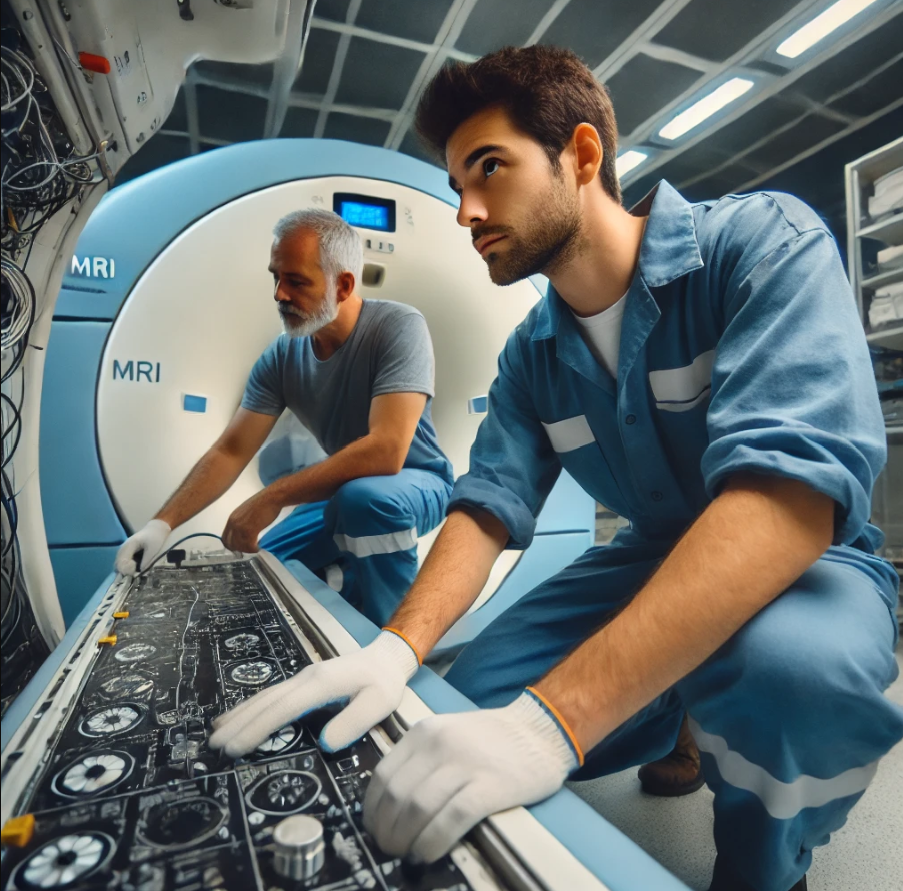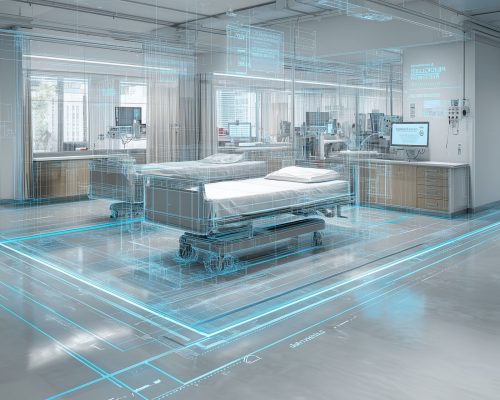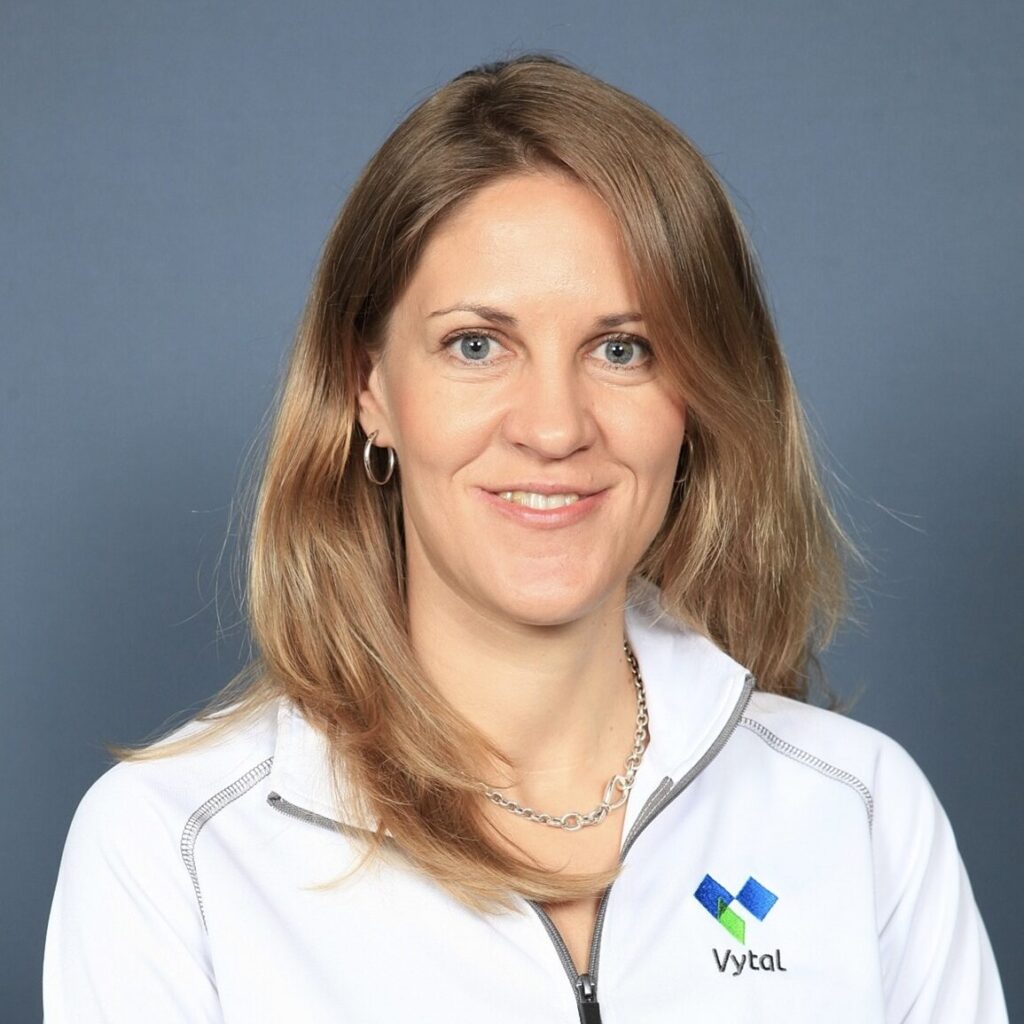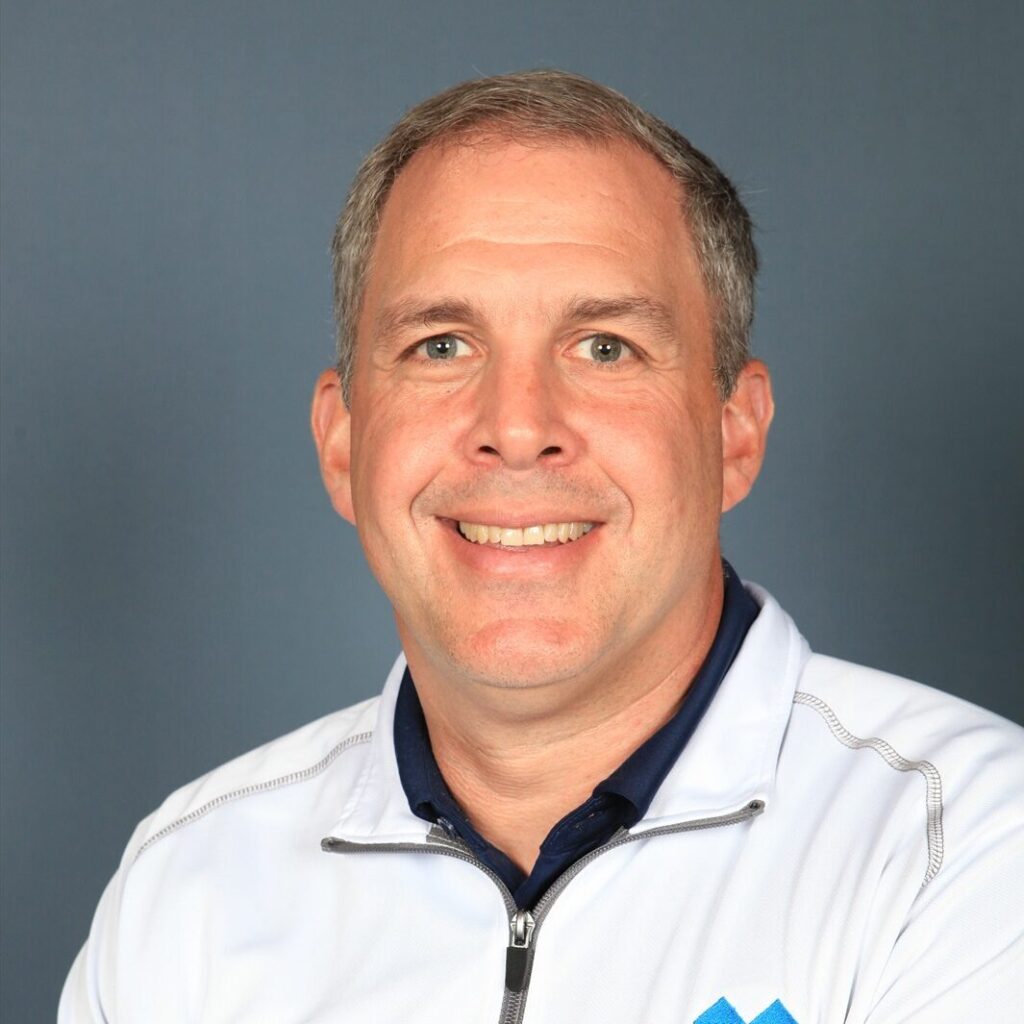
Key takeaways
- Preventive maintenance in healthcare facilities extends asset lifespan, improves patient safety, and boosts ROI
- A CMMS (Computerized Maintenance Management System) automates and optimizes preventive maintenance, reducing downtime and costs
- The Asset Criticality Score is among the hottest metrics monitored by healthcare facilities leaders, helping objectify and prioritize scarce resources
Preventive maintenance in healthcare facilities is more than a routine process; it’s a strategic investment that, if done correctly, will extend asset lifespans, enhance patient safety and ultimately bolster ROI across a campus’s asset portfolio. By proactively maintaining critical assets such as medical equipment and building systems, healthcare organizations can avoid costly repairs, improve operational efficiency, and enhance patient care.
In the digital age, a computerized maintenance management system (CMMS) has become critical for effective preventative maintenance programs. A strong preventative maintenance strategy, coupled with a CMMS that’s purpose-built for healthcare, can position a campus for strong gains across compliance, asset performance, and patient safety.
What is Preventive Maintenance and Why It Matters in Healthcare
Preventive maintenance refers to the practice of regularly inspecting, servicing, and maintaining equipment and infrastructure to prevent unplanned breakdowns. In healthcare, where uptime of critical mechanical systems and medical devices is crucial, preventive maintenance is essential for ensuring that hospitals run efficiently and patients receive uninterrupted care.
When healthcare facilities implement preventive maintenance, they benefit from fewer unexpected repairs and equipment downtime. This proactive approach extends the lifespan of assets and reduces the need for emergency fixes, which are often more expensive than routine maintenance.
In addition to cost savings, preventive maintenance is integral to maintaining regulatory compliance, as healthcare facilities are subject to strict safety and operational standards of The Joint Commission, DNV, or Department of Health.
CMMS: The Backbone of Efficient Preventive Maintenance
A Computerized Maintenance Management System (CMMS) is a vital tool that supports healthcare facilities in managing their preventive maintenance efforts. CMMS helps healthcare teams schedule, track, and optimize maintenance tasks, ensuring that no essential equipment is overlooked.
A robust CMMS can automate the scheduling of preventive maintenance for various assets, including medical equipment, HVAC systems, and electrical infrastructure. By using a CMMS, healthcare facilities can track equipment performance in real time, generate work orders for maintenance, and keep detailed records of repairs.
Key CMMS Features for Healthcare Preventive Maintenance
Keep these features in mind when selecting a CMMS platform:
Automated scheduling: CMMS allows automatic assignment of preventive maintenance schedules, reducing human error and ensuring timely upkeep with regulatory standards
Work order management: Facility managers can create, track, and manage work orders digitally, ensuring that maintenance is performed on time. Integration of barcodes or QR codes allows for quick scanning of assets, making it easier for teams to access work order information
Asset criticality scoring: CMMS helps facilities prioritize maintenance tasks by assessing the criticality of assets. This feature enables managers to focus resources on high-risk assets, minimizing disruptions and optimizing resource allocation
Reducing Downtime and Emergency Repairs with Preventive Maintenance

Unexpected equipment failures can have severe consequences in healthcare, not only increasing costs but also disrupting patient care. Emergency repairs are often more expensive than scheduled maintenance and can result in significant downtime, negatively impacting operations and patient safety.
Preventive maintenance drastically reduces the likelihood of equipment failures by addressing potential issues before they escalate. With a well-implemented preventive maintenance program, healthcare facilities can avoid these costly breakdowns and reduce downtime.
Some CMMS platforms enable healthcare facilities to measure asset criticality scores, which evaluates assets based on their risk of failure and impact on patient care. This allows healthcare teams to prioritize preventive maintenance on high-risk equipment, ensuring that the most critical systems remain operational.
Financial Benefits of Preventive Maintenance: Lower Costs and Stronger Asset Longevity
One of the most significant benefits of preventive maintenance is cost savings. Regular maintenance extends the lifespan of equipment, reducing the need for expensive replacements. By maintaining assets before they fail, healthcare organizations can reduce both capital and operational expenses.
Preventive maintenance can also lead to a reduction in energy consumption and optimized resource use. Facilities can allocate labor more efficiently by focusing on high-priority tasks rather than dealing with frequent emergencies.
Moreover, CMMS platforms can track maintenance costs and asset performance over time, providing healthcare executives with data to make informed decisions. The ability to generate Comprehensive Reporting and track work orders through a CMMS platform helps ensure that the facility operates within budget, contributing to better financial outcomes.
Enhancing Compliance and Risk Mitigation through Preventive Maintenance
Healthcare facilities are subject to stringent regulations from agencies like The Joint Commission and the Centers for Medicare & Medicaid Services (CMS). Failure to comply with these regulations can result in fines, penalties, or even loss of accreditation.
Preventive maintenance helps healthcare organizations stay compliant by ensuring that equipment is regularly inspected and maintained according to regulatory standards. CMMS plays a crucial role in this process by automatically updating regulatory requirements and integrating compliance checks into the work order process.
With a CMMS tool purpose-built for healthcare, teams can:
Generate compliance reports: Automatically create reports that detail completed maintenance tasks, ensuring that facilities remain audit-ready
Tie regulatory standards to maintenance: Link equipment maintenance schedules with healthcare-specific regulatory requirements to ensure compliance
Building a Proactive Maintenance Culture with Facility Operations Software

A successful preventive maintenance strategy is not just about technology; it’s about fostering a proactive culture. By shifting their mindset from reactive to preventive maintenance, healthcare facilities leaders can enable their teams to maximize efficiency and minimize risks.
CMMS and facility operations software empower healthcare teams to take a proactive approach by providing actionable insights. For example, Vytal Assets offers detailed operational dashboards that allow managers to monitor work orders, labor hours, and asset health in real time. These insights help managers anticipate problems, allocate resources efficiently, and make informed decisions.
The transition to a preventive culture supported by facility operations software leads to improved staff accountability and more streamlined processes. Teams can stay ahead of maintenance issues, avoiding costly surprises and focusing on delivering better patient outcomes.
Investing in Preventive Maintenance and a Healthcare-Focused CMMS
In healthcare, preventive maintenance is much more than routine upkeep—it’s a strategic investment that delivers significant ROI. By reducing downtime, minimizing the need for emergency repairs, and extending asset life, preventive maintenance helps healthcare facilities operate more efficiently while enhancing patient safety.
Healthcare organizations that embrace preventive maintenance and utilize a CMMS tool will not only improve their financial health but also transform their facilities into strategic assets that contribute to better patient care. As the healthcare industry continues to evolve, investing in preventive maintenance will remain a key strategy for ensuring operational excellence and long-term success.
Interested in learning more about Vytal’s CMMS, purpose-built for healthcare? Get started today








